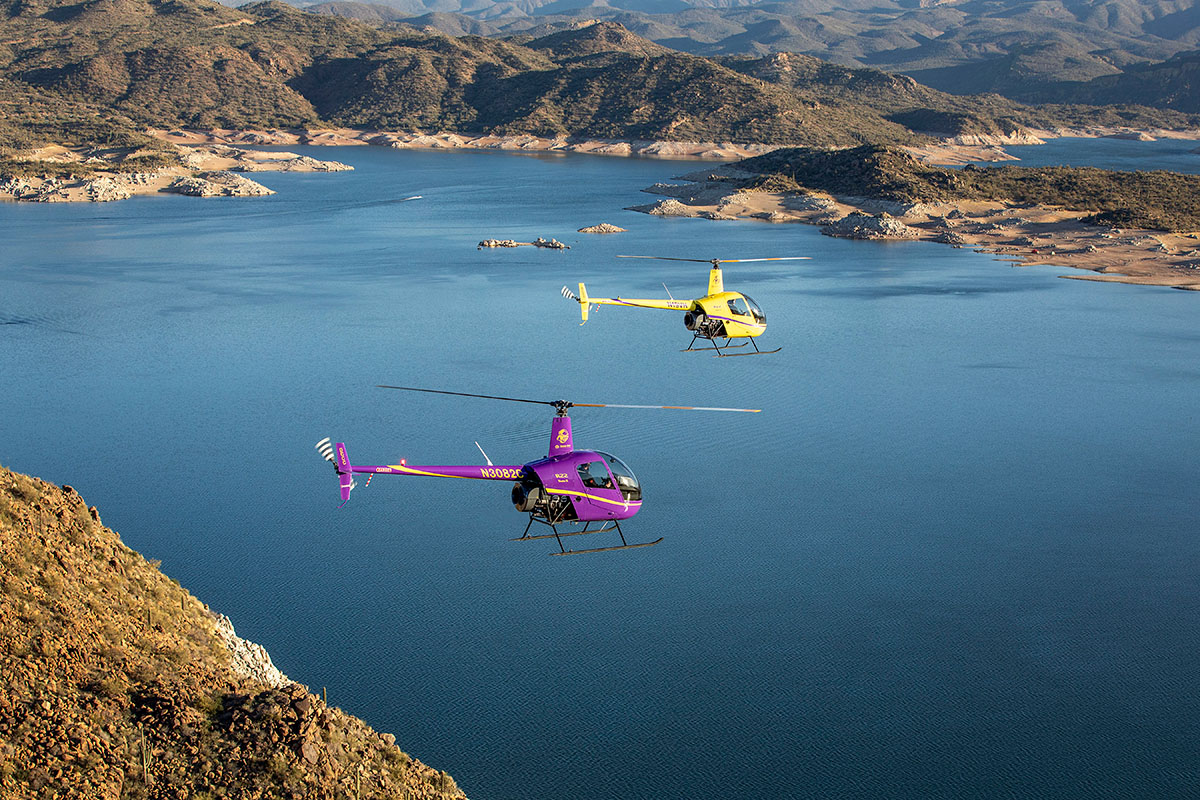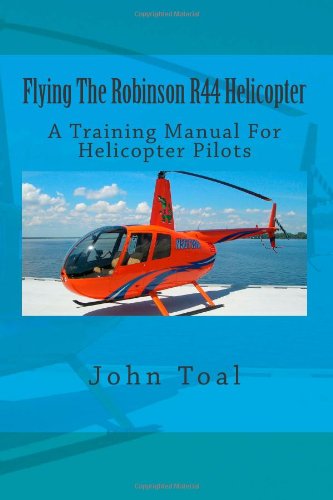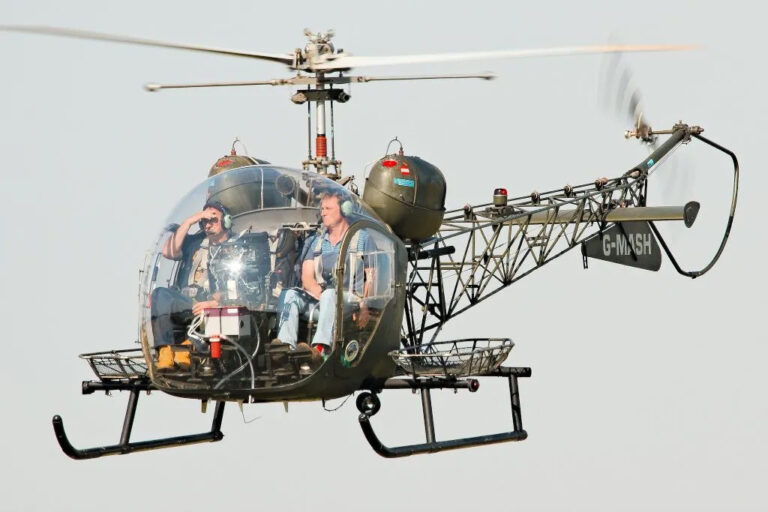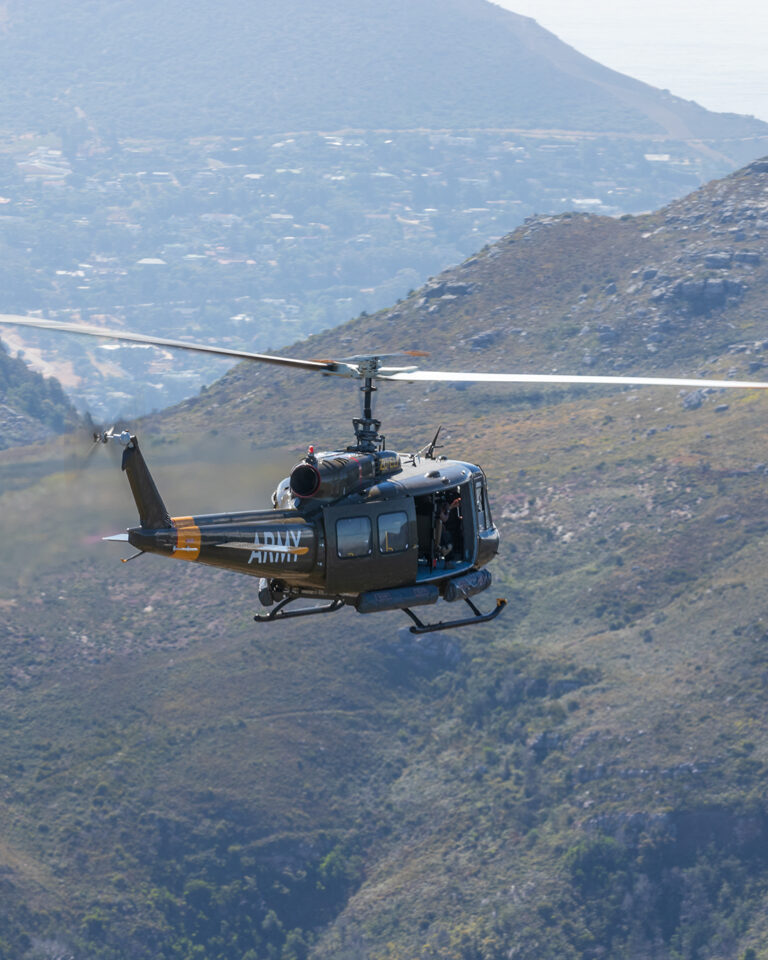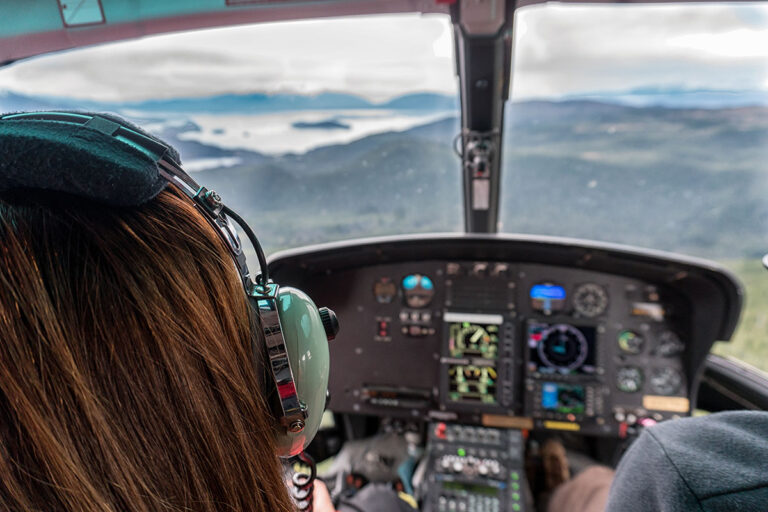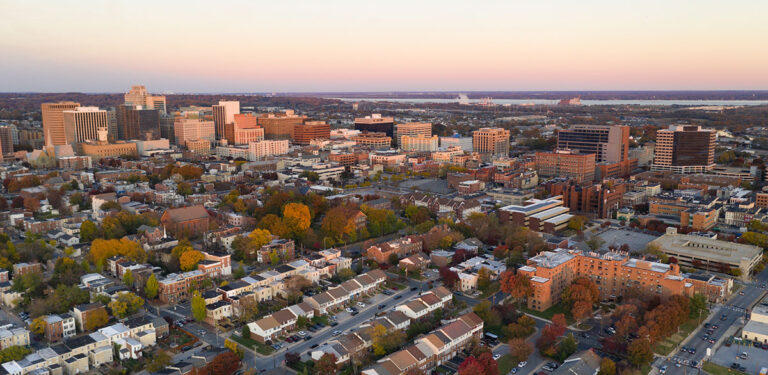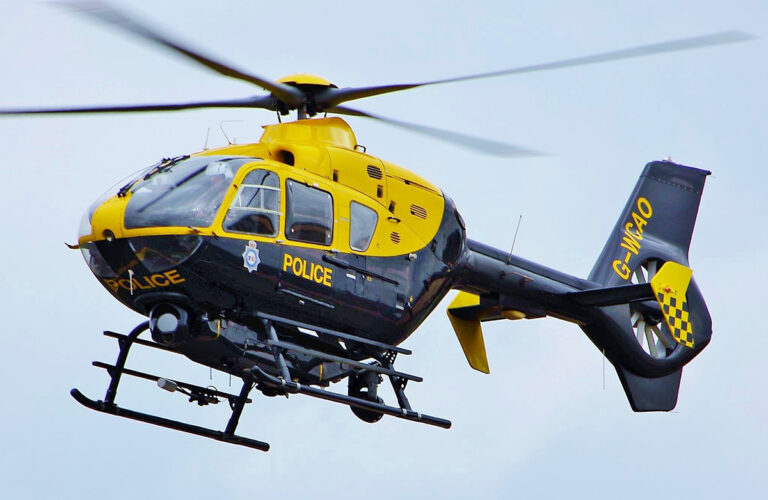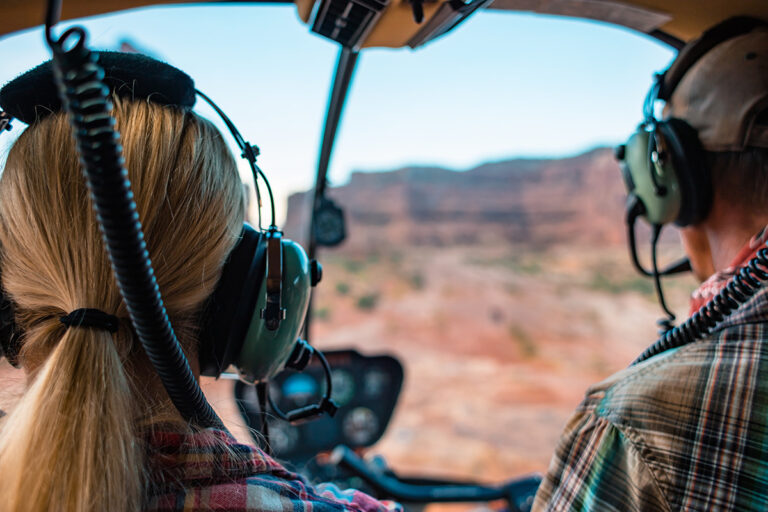Helicopter Pilot Graduates are in High Demand
Reprinted with Permission of Molly McMillin from The Wichita Eagle
Graduates of a growing Dodge City Community College helicopter flight instructor program are finding work in the helicopter industry.
“All of our graduates are employed,” said Anthony Lyons, the college’s vice president of community and industry relations. “And that’s the way we intend to keep it.”
Demand for pilots is growing.
Ultimate Pilot’s Operating Handbook – Robinson R44
This book expands the information the factory provided pilot’s operating handbook (POH) gives and provides valuable information for pilots flying or going to fly the Robinson R-44.
Whether you are a student pilot getting to know the R-44 or an experienced pilot reviewing content for recency or biannual check rides this Handbook will provide the information you need.
Many commercial helicopter pilots today were pilots during the Vietnam War. They’re now retiring or no longer have medical certificates that allow them to fly, Lyons said.
“We’re going to place … more than our share in the industry,” Lyons said of the Dodge City graduates.
DCCC also operates outreach campuses in Salina, Arizona and Utah.
The college provides the academic part of the program and contracts with Universal Helicopters, based in Arizona, to provide the flight training.
Students can earn seven pilot ratings during the first two years in the program, Lyons said, including private, instrument, commercial, certified flight instructor, certified flight instructor instrument, turbine transition and night vision goggle ratings.
“They are moving at a pretty fast clip,” Lyons said.
Universal Helicopters hires 100 percent of the graduates as part-time flight instructors in the program while they complete their bachelor degrees at Kansas State University – Salina or Embry-Riddle Aeronautical University in Arizona.
As flight instructors, they accumulate the 1,000 hours of flight time needed to be hired as commercial helicopter pilots.
They’re finding work with oil rigs, medical evacuation operations or with other companies, Lyons said.
With a college degree, helicopter training and a recommendation from the school, “we’re able to get all our graduates hired out at 1,000 hours,” said Gordon Jiroux, president of Universal Helicopters.
Lyons said the college is expanding its operation in Provo, Utah, and will soon begin a program in Camarillo, Calif.
About 120 students are enrolled in the programs, including 12 at the Dodge City campus. The number is expected to grow to 150 or 160 students in the spring semester.
“For helicopters, that’s extraordinary,” Lyons said.
It’s an expensive program. Students will spend between $100,000 and $150,000 for the first two years of training, he said.
It will cost another $30,000 to $40,000 at K-State to complete a bachelor’s degree, Lyons said. Embry-Riddle is more expensive.
“A lot of our students have to borrow,” Lyons said. But, “our students start out making $60,000 to $65,000 a year. We’ve got students working for aviation companies out two or three years already in the $80,000 range.”


